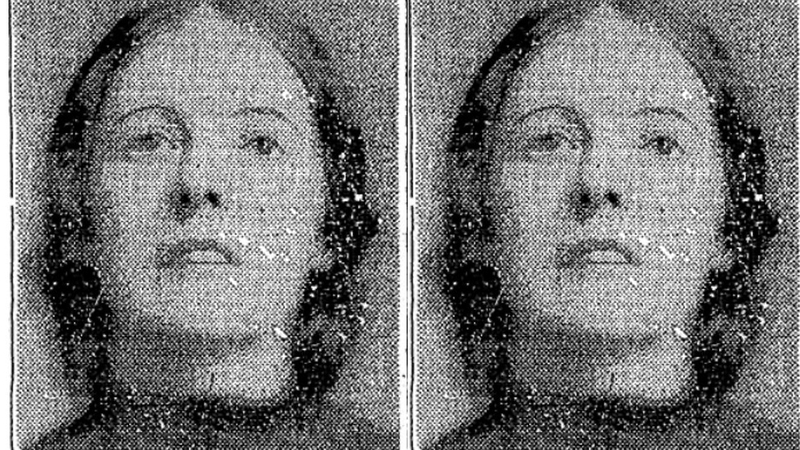Analysis: 'Eccentric' journalist Lia Clarke was the first representative for the Nazis' German News Agency in Ireland
Ireland played an insignificant role in the broader context of Nazi foreign policy. Several factors illustrated this point, such as the Nazis' decision to send inadequate intelligence agents equipped with neither sophisticated knowledge of the local geographic and political landscape nor the practical instruments to carry out effective clandestine operations.
But Ireland moved from its peripheral position in the minds of Nazi military planners during the latter half of 1940. The Battle of Britain led to some proposals for a German invasion of the country as part of the Nazis’ failed attempt to crush Britain into submission. However, Britain’s ability to withstand German airstrikes and Nazi preparations for an advance on the Soviet Union ensured that Ireland retreated once more to the fringes of Nazi foreign policy.
We need your consent to load this rte-player contentWe use rte-player to manage extra content that can set cookies on your device and collect data about your activity. Please review their details and accept them to load the content.Manage Preferences
From RTÉ Radio 1's History Show, Marc McMenamin reports on the Nazi plan to invade Ireland during World War Two
The Second World War was a conflict which did not just take place militarily on land, sea and by air. Like other neutral states, Ireland was strategically important to an alternative battleground which saw belligerents vie for public and government favour in a propaganda war. Nazi attempts to win support among Irish audiences began some years before the war broke out in September 1939, following the German invasion of Poland.
This propaganda took on many guises. Some were ostensibly apolitical in the form of cultural exchanges and tourism campaigns but others espoused more overtly political sentiments. The objective was to improve Irish perceptions of the Nazi regime and its policies. There were several (oftentimes competing) actors at play working towards this end and one such player was the Deutsche Nachrichten Büro (DNB), the German News Agency.
The agency's first representative in Ireland was journalist Lia Clarke (née Cummins). She was born in 1889 and educated in Waterford and Dublin before moving to Vienna to study medicine. During her time on the continent, she travelled frequently and became fluent in German. Upon her return to Ireland, she pursued further studies at the College of Surgeons, although she later abandoned the prospect of a medical career. In 1920, she married Irish poet Austin Clarke, although their marriage broke down after just a few days.
We need your consent to load this rte-player contentWe use rte-player to manage extra content that can set cookies on your device and collect data about your activity. Please review their details and accept them to load the content.Manage Preferences
From RTÉ Radio 1's The History Show, author and historian Dr David O'Donoghue tells the story of when German Radio broadcast Nazi propaganda to Ireland – as Gaelige
Known for her 'eccentric’ character, Clarke worked throughout the 1930s as a freelance journalist, contributing predominantly to the Irish Press but also, on occasion, to the Irish Times and the Irish Independent. In 1936, on account of her ‘good working knowledge of the German language’ as well as her pro-German and anti-Semitic views, Dr Adolf Mahr (then leader of the Nazi Party in Ireland and director of the National Museum) appointed her as the Irish representative to the DNB. In this capacity, as the historian Eunan O'Halpin has put it, her role was ‘to advise the German press on the Irish point of view, and in particular to furnish them with any material which would assist their anti-British Press policy’.
While Clarke paid frequent visits to the German legation in Dublin and was a regular guest at its social events, her contributions to the Irish press were predominantly cultural in nature. In 1936, she travelled to Germany to visit the Bayreuth festival at which she attended a performance of the famous Oberammergau Passion Play. Upon her return, she recounted her experience in Irish newspapers and through radio broadcasts. As a critic of drama, music and art, this would seem unsurprising. However, it is worth noting the importance that the Nazi regime attached to cultural propaganda to win favour abroad; a tactic that was particularly useful in states ideologically at odds with the regime.
In October 1938, Clarke departed from her usual cultural commentary, providing a distinctly pro-Nazi account of the German takeover of the Sudetenland, a region in Czechoslovakia which hosted a majority German-speaking population. Reporting from the region herself at the time of the Nazis' advance, Clarke lent justification to Nazi aggressions by describing the annexation as a liberation mission for the Sudeten Germans.
We need your consent to load this rte-player contentWe use rte-player to manage extra content that can set cookies on your device and collect data about your activity. Please review their details and accept them to load the content.Manage Preferences
From RTÉ Archives, German born Irish citizen Helmut Clissmann recalls failed attempts during World War II to land him in Ireland to spy for the Nazis
Shortly thereafter, Clarke was dismissed from her duties with the DNB, having reportedly failed to provide sufficient material concerning 'trouble over the Border and in the six Counties’ of Northern Ireland. She was replaced by Dr Karl Heinz Petersen, who was later promoted to the role of press attaché to the German legation in Dublin, while Clarke, as compensation of sorts for her dismissal, was appointed to another German news agency, the Graf Reischach Dienst.
According to Irish intelligence, Clarke was also receiving an unknown amount of funds at this point for 'anti-Jewish purposes'. In February 1939, she penned a vehemently anti-Semitic circular under the moniker of AJ Browne. This was distributed to some 80 people in Dublin by Clarke’s recently established group, The Irish Ireland Research Society. Despite her efforts, the organisation failed to garner public traction, leaving Irish intelligence to declare that it was effectively non-existent.
Following this, Clarke largely withdrew from her pro-Nazi activities. The one exception to this was her attendance at a Dublin meeting organised by the Irish Friends of Germany in August 1939, the proceedings of which Clarke reported to her superiors in the Graf Reischach Dienst. The meeting expressed support for Nazi Germany’s expansionist goals, with one speaker claiming that ‘Germany has just as good a right […] to have an Empire equal to the British’. Yet, by May the following year, a police report had concluded that Clarke was no longer ‘engaged in any suspect activity’.
We need your consent to load this rte-player contentWe use rte-player to manage extra content that can set cookies on your device and collect data about your activity. Please review their details and accept them to load the content.Manage Preferences
From RTÉ Radio 1's History Show, historian and author Catherine Fleming on Sister Kate McCarthy, the Irish nun in the French resistance movement who was incarcerated by the Nazis
Clarke died of pneumonia in October 1943, a time when the Irish Government remained committed to its pro-Allied neutrality and the course of the war had decidedly turned against Germany’s favour. The Nazi regime had suffered successive military defeats which would only continue to mount until its eventual collapse in May 1945.
Clarke’s pro-Nazi endeavours went unmentioned by newspapers reporting on her death. While they paid reference to the collection of poems that she had once published under the pseudonym Margaret Lyster, there was no comment about the anti-Semitic discourses she had promoted under the pen name AJ Browne. Within Irish cultural and journalistic circles, Clarke had passed away with her reputation essentially intact. However, the same was not true for others who had also worked to promote Nazi interests in Ireland.
Follow RTÉ Brainstorm on WhatsApp and Instagram for more stories and updates
The views expressed here are those of the author and do not represent or reflect the views of RTÉ


